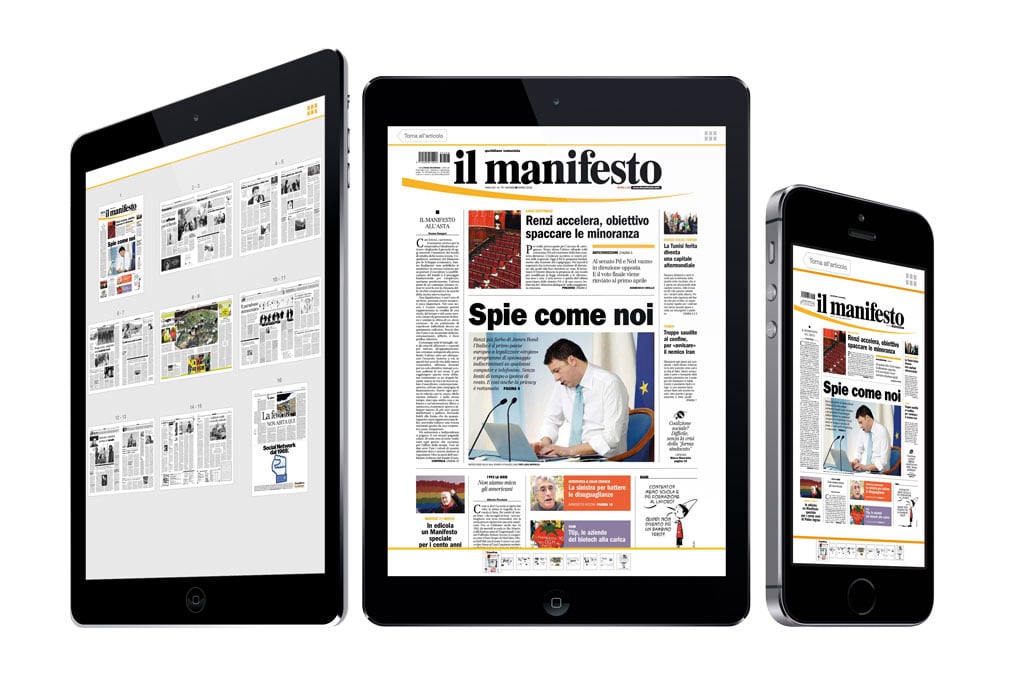il manifesto brings its iconic journalism to an English audience
Meet the new face of progressive world news Global wants to be part of a conversation about what it means to be a world citizen in a system riven with injustice and inequality. It asks cutting questions and challenges prevailing dogmas, but it is also a tool for you, our readers; when you engage with il manifesto and its perspective, you’re led to confront your own conscience. You ask yourself: What do I really know? What do I stand for? What could we do, together, to change?
 Quentin Tarantino, 2015 – Luca Celada-il manifesto (all rights reserved)
Quentin Tarantino, 2015 – Luca Celada-il manifesto (all rights reserved)Meet the new face of progressive world news Global wants to be part of a conversation about what it means to be a world citizen in a system riven with injustice and inequality. It asks cutting questions and challenges prevailing dogmas, but it is also a tool for you, our readers; when you engage with il manifesto and its perspective, you’re led to confront your own conscience. You ask yourself: What do I really know? What do I stand for? What could we do, together, to change?
Three days before Christmas, in 2000, reporters at the Italian daily newspaper il manifesto assembled in the newsroom of their Rome headquarters for the usual editorial staff meeting. At the same time, a strange man approached the front door with a package decorated in holiday gift wrap and set it on the floor. The man was Andrea Insabato, a right-wing hardliner, and the gift was a bomb.
But he set it incorrectly, and it erupted before he could dash away. “There was a huge explosion,” said Riccardo Barenghi, editor of the paper at the time. “The front door had been blown in, and on the landing there was an injured man in a pool of blood.” All the journalists, gathered inside for their meeting, were unharmed.
Il manifesto is the kind of newspaper that makes stupid people want to blow it up.
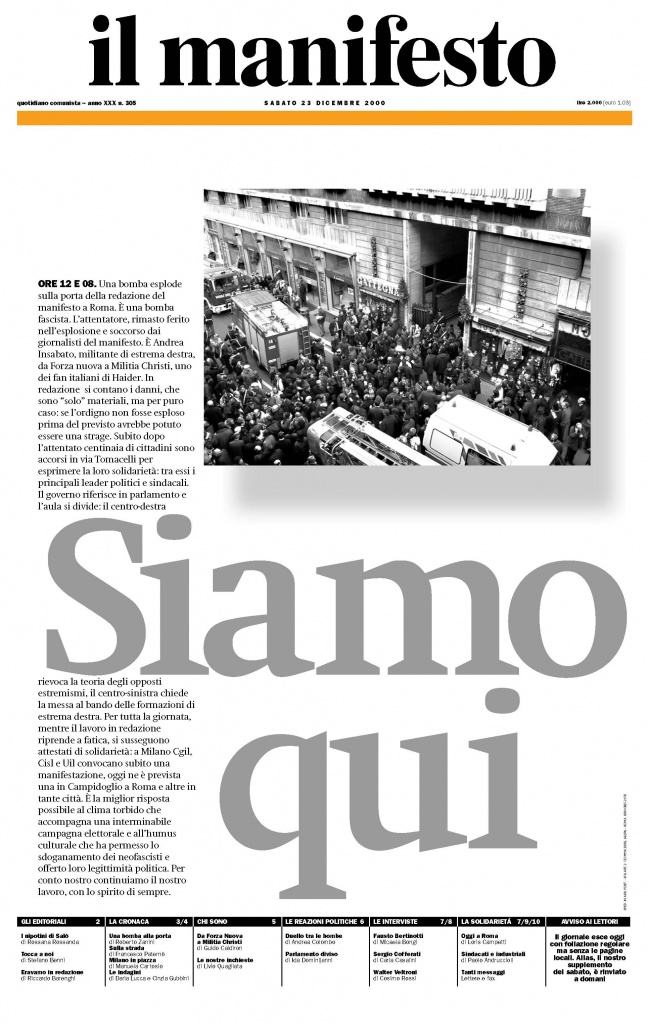
It was founded in 1969 on the idea that truth and freethinking are more important than everything else, including profit.
The paper pays for its editorial idealism in the form of lost advertising. But it keeps costs low by paying everyone the same low salary: There are no owners (it’s a cooperative), and the editor and managers are elected every four years by the employees. And still the paper earned more than €6 million in 2014 and maintains a newsroom of 45 staffers in Rome and 10 correspondents abroad, filing dispatches from Beijing to Jerusalem to Los Angeles.
Until recently, il manifesto was only in Italian. But that changed on Oct. 10 with the publication of a report about Tunisia’s alleged violations of refugee conventions. The nation, it seems, is capturing asylum seekers, driving them into the desert and abandoning them. But the article — as il manifesto stories do — goes a step further, connecting dots to European pre-border policies that implicate not just a handful of Tunisian bureaucrats, but all of us.
In a world connected and ruled by trade and the politics of power, no one is innocent. And it’s here, in these uncertain shades of moral exploration, that il manifesto is most comfortable.
This year, the editors decided it was time to share this exploration with people who don’t speak Italian.
Now the paper is embarking on a new, English-language beginning with il manifesto global.
Global is currently published online for free at ilmanifesto.global and on Medium, featuring translations of il manifesto reportage and news analyses from around the world.
[do action=”citazione”]This is just a soft launch. The exciting stuff begins in January.[/do]
In 2016, global will launch new digital platforms, including a new standalone website, apps for iOS, and a Web App for smartphones, tablets and desktops. It will also include original reporting and cross publishing with select publishers and news magazines from all over the world. We’ll publish around the clock on the web and release curated weekly editions for apps, introducing memberships, subscriptions and single-edition sales with digital-savvy pricing and flexible models. In this way, it will be similar to the Italian website, but less expensive.
One difference will be the presence of sponsorships (Are you interested? Write to bartocci@ilmanifesto.it.) and some advertising to sustain the publication, but we will continue to respect our readers and our high-quality journalism by keeping the experience uncluttered.
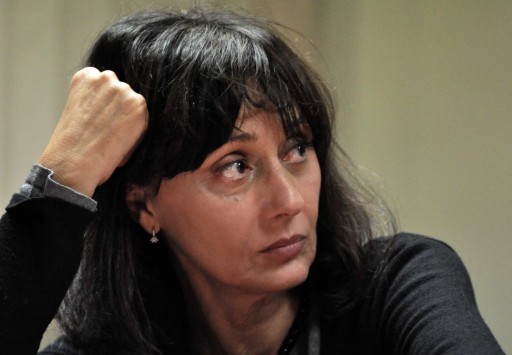
Global wants to be part of a conversation about what it means to be a world citizen in a system riven with injustice and inequality. It asks cutting questions and challenges prevailing dogmas, but it is also a tool for you, our readers; when you engage with il manifesto and its perspective, you’re led to confront your own conscience. You ask yourself: What do I really know? What do I stand for? What could we do, together, to change?
As the current editor, Norma Rangeri, wrote: “The shape of our paper, its character as an independent publication answering to no master, and our cooperative of journalists and technicians, have always been a happy anomaly, a heresy, flesh-and-blood evidence that the market is not an absolute monarch, and that we are not bound by its laws.”
Is il manifesto communist?
After the Italian Resistance and the fall of fascism in 1945, Italians formed a robust communist party that held popular sway in the country through the 1980s. But during the worldwide cultural revolution of the late ‘60s, the far left began to splinter.
Il manifesto was founded in 1969 as a monthly review by a group of members of the Italian Communist Party and leaders of the Italian “1968 movement” who opposed the U.S.S.R’s invasion of Czechoslovakia the year prior and were critical of Soviet communism generally. This angered party officials, and at the end of 1969 the founders were cast out of the communist party.
On April 28, 1971, il manifesto became a daily newspaper and has outlasted both the Italian Communist Party and the Soviet Union.
[do action=”citazione”]Publishing without interruption for more than 40 years.[/do]
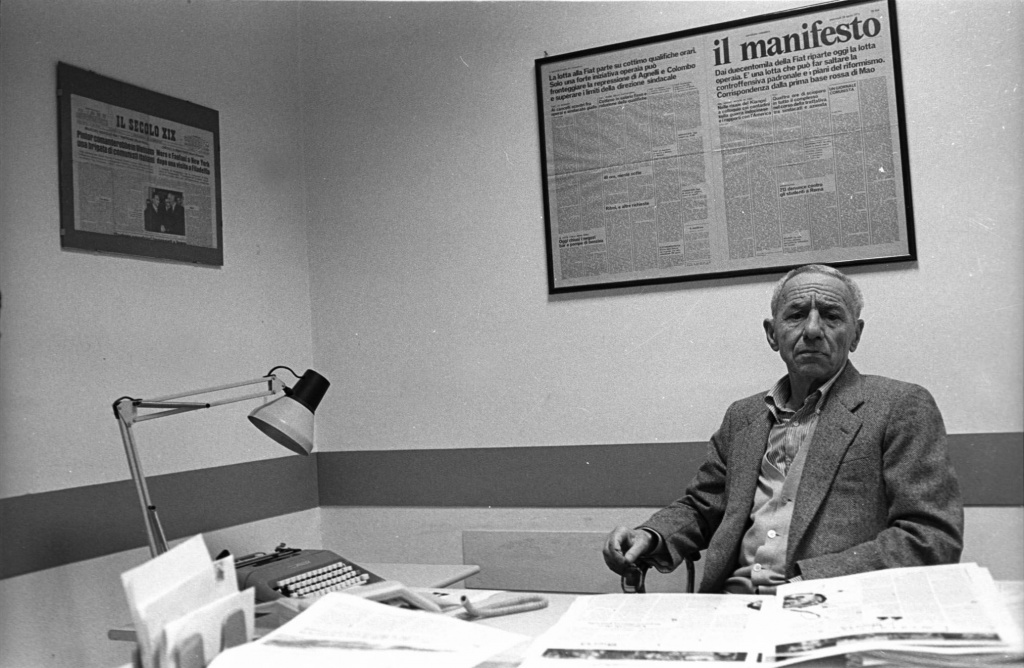
Il manifesto has for decades been unaffiliated with any party or political doctrine, though such affiliations are common in Italy. However, it has kept the heading “quotidiano comunista” on its masthead as an acknowledgment of its historical and cultural heritage.
Maybe it’s not communist, but the reporting has a leftist bias, right?
Every story told or untold is biased. We have an identity, and our reporters have points of view, but these are declared and well-known.
We believe the more dubious journalism is the kind that feigns objectivity while concealing bias.
You will never find orthodoxy here. And that’s partly why il manifesto is still publishing every single day after 44 years, surviving mostly on subscriptions and donations.
It’s because we’re different from what most readers think a leftist newspaper is. That is, we’re just regular people with eyes and ears, and we’re not always angry. We’re citizens of the world just like you. We live in the free market, where capitalism dominates everything. Are you satisfied? Is it OK? Maybe some things are OK, but what are you doing to fix what isn’t? Do you wait and see, or do you want to take action?
[do action=”citazione”]Il manifesto’s reporting and analysis is there to help our community of readers through this process of understanding the world and reacting to it.[/do]
We oppose the plutocracy of old and new oligarchies, imperialism in all its forms and environmental irresponsibility.
We are against dogmas, but we are resolutely for peace, social solidarity and economic justice. We advocate inalienable human, civil and cultural rights in an age of globalization that too often runs roughshod over democracy.
What does it mean that you’re a cooperative?
Il manifesto employees own and manage the publication. They directly elect the editor-in-chief and the administrators, approve the budget each year and decide on internal rules as necessary. Everyone earns roughly the same salary, and after four years the editor may return to the ranks of the beat reporters if he or she loses support. All employees are automatically stakeholders while working for il manifesto, but the cooperative is also a nonprofit; no one receives any dividends.
So how do you make money?
With great difficulty. The financial meltdown of 2008 hit every newspaper in the world, and il manifesto was no exception. By 2012, the paper filed for bankruptcy and liquidated much of its holdings. Although it never ceased publication, it did lose ownership of its logo, and a fundraising campaign is underway to buy back il manifesto from the liquidators.
But il manifesto came back stronger. It spends less than it earns. It launched a total redesign, a new website and apps for iOS and Android.
And now we’re the first Italian newspaper to launch an English-language global edition.
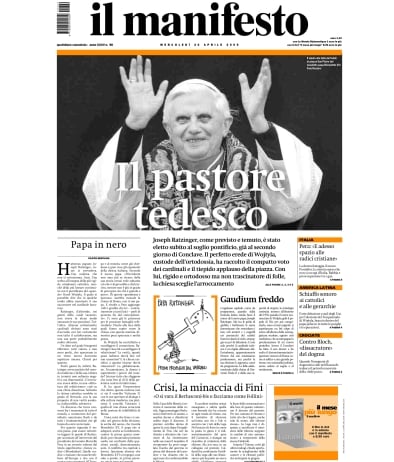
We also strive for financial transparency, and every year, we publish our earnings and expenditures here (it’s in Italian for now).
What is the future for il manifesto global?
On a broader scale and for a larger audience, il manifesto global will dive deeply into stories that too often are left untold. Our journalists specifically look for stories that aren’t all over the headlines but are nonetheless important, or they expose deeper meaning behind the big news of the day.
[do action=”citazione”]Il manifesto covers daily all the main international and domestic stories.[/do]
Since the beginning it has had a tradition of excellent international news coverage and culture analysis and reviews.
Currently, we are reporting deeply on the refugee crisis, the conflict in Syria, the new Intifada in Israel/Palestine, Latin America and the issues of austerity in the eurozone.
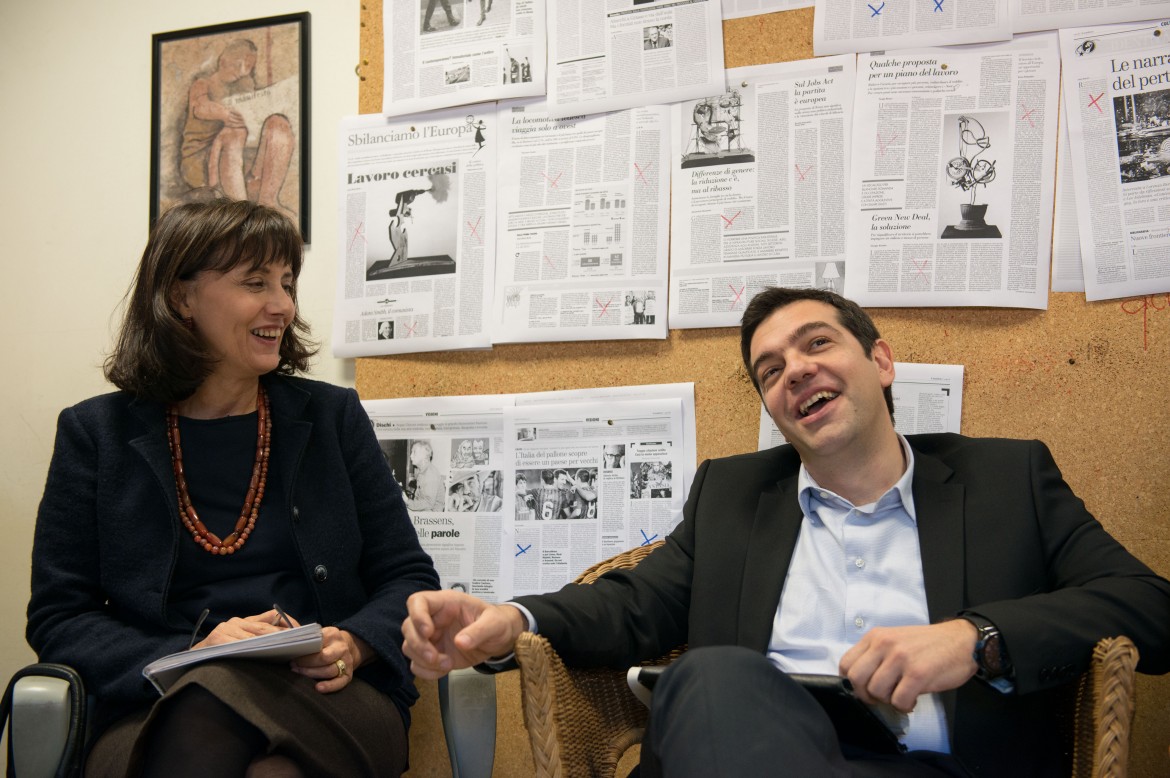
In the past we’ve covered the wars in Iraq. In 1991, for example, the only Western journalists reporting from Baghdad were Peter Arnett of CNN and Stefano Chiarini of il manifesto. The paper has gone to such lengths for the unfiltered story that in 2005 our reporter, Giuliana Sgrena, was kidnapped by insurgents, rescued by the Italian intelligence agency and then shot at on the way home by U.S. soldiers. (Nicola Calipari, a top Italian intelligence officer was killed; Sgrena was injured.)
[do action=”citazione”]This fearless reporting is now being translated into English daily, and regular original stories are on the way.[/do]
Most importantly, il manifesto global is here for you, the readers, to make a new name for respectable journalism, beholden to no one but you, without limits on our speech or business model and technological innovation, with no paper legacy to defend and only our collective, global future to be written.
PS. If you want to know more about il manifesto you can also read our Wikipedia entry (we’ve never edited it, so read it at your own risk) and this small presentation on our main website.
I consigli di mema
Gli articoli dall'Archivio per approfondire questo argomento

